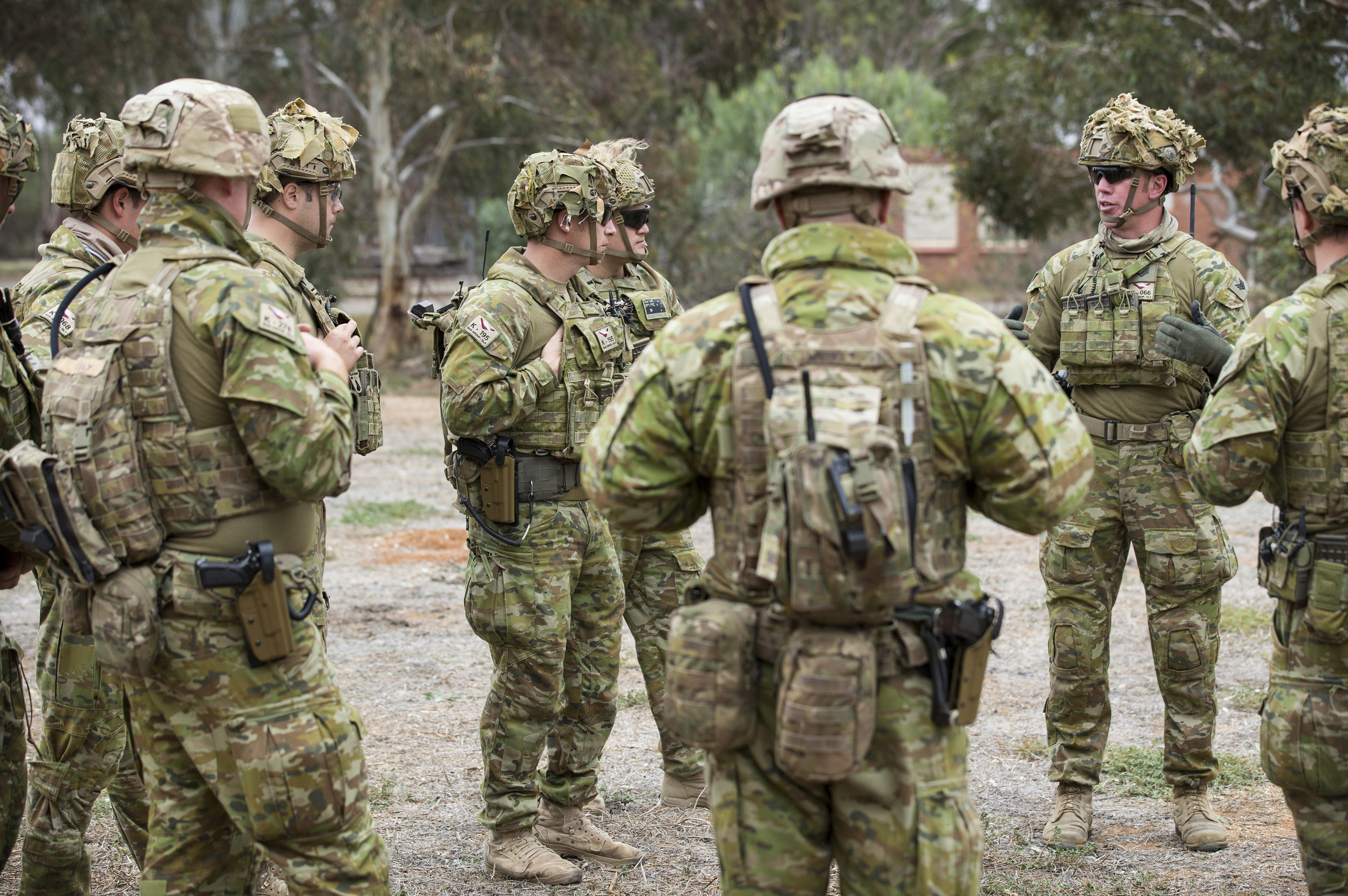
How will you fight in the future? As a junior military commander you are responsible for training your team to meet the needs of the future fight. What is that future fight and how do you prepare for it? How do you train your team to adapt to the fight?
Recently there has been a lot of interest in hybrid war and, to a lesser extent, hybrid warriors. The operations of Hezbollah in Lebanon, the Islamic State in Syria and Iraq as well as those of the ‘little green men’ in the Ukraine have captured the attention of academics and soldiers alike. Much of the focus has been on the strategic implications of such threats.
Junior commanders need to be aware of the strategic implications of the actions of friend and foe alike; however, the tactics are what concerns the junior commander most. The future operating environment and the changing character of war will influence which tactics succeed and which ones will get your team killed.
The Australian Army Future Land Warfare Report 2014 provides a simply written estimate of the changes to the character of war in the foreseeable future. It outlines the future operating environment through an analysis of ‘meta-trends’. These ‘meta-trends’ paint a complex picture of increased lethality, connectivity, dense urban environments and the need for adaptation.
The need for adaptation is a key take away for a junior commander. The future fight will most likely redefine the boundaries we have been comfortable with in the past. Successful militaries deal with change through innovation. Junior commanders sit at the nexus between innovation and stagnation. The roles of change agent, project manager, and innovation mentor are important to the innovation process. An adaptive commander may fill one, two or all three of these roles within their team.
The British Military’s experience in innovation during the First World War is illustrative of the importance of these roles. A junior commander can learn from historical examples and develop a process that enables their team to adapt to meet future challenges.
Practical steps junior commanders can take to build this requirement in their teams include:
- Encouraging debate about the future fight and your team’s role in that fight
- Demonstrating the innovation process by developing and executing your own idea
- Enabling your team members to propose, develop and execute their ideas
- Providing those accountable for an idea with the credit and rewards of success
- Understanding your role may be in the facilitation of innovation
The future fight is unclear. The studies that allude to hybrid threats and ‘meta-trends’ offer an indication of likely challenges. Today’s junior commanders are responsible for training the teams that will fight tomorrow’s wars. They best prepare these teams by learning to innovate and training the men and women under their command to adapt and win.
Mick Cook is an officer in the Royal Regiment of Australian Artillery and hosts The Dead Prussian podcast. He is passionate about encouraging critical thought on war amongst military professionals. He is the Director of Communications and Marketing for DEF Australia. Views expressed are those of the author and do not necessarily represent those of the Australian Defence Force


2 thoughts on “Training to Innovate – Innovating to Win”
Do you think that our red force picture provides us with a near peer enemy which requires junior commanders to adapt during training? I think EX HAMEL provides a great opportunity for blue forces to be tested against an adaptive and unpredictable enemy, but I sometimes feel that other exercises are too scripted and often don’t test the enabling functions (how often are CSS functions put in a white box?)
The logistics functions are something that I, as a gunner, am keen to explore. The problem of second and third line supply direct to a gun line in an uncertain or contested environment presents a very difficult tactical problem. I am interested in the logistician view of this type of resupply, noting that as gunners we meet them at the delivery point on the gun line.
Comments are closed.